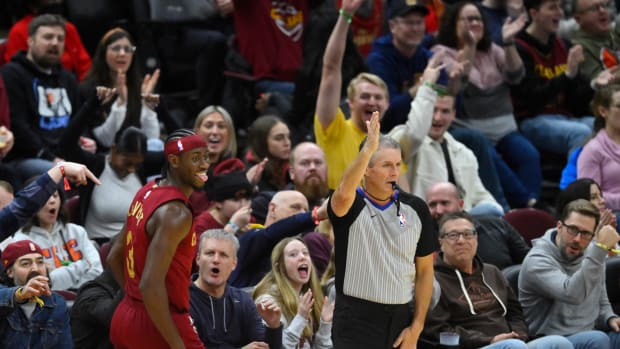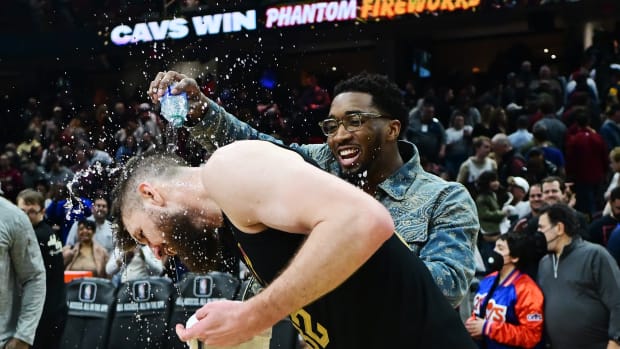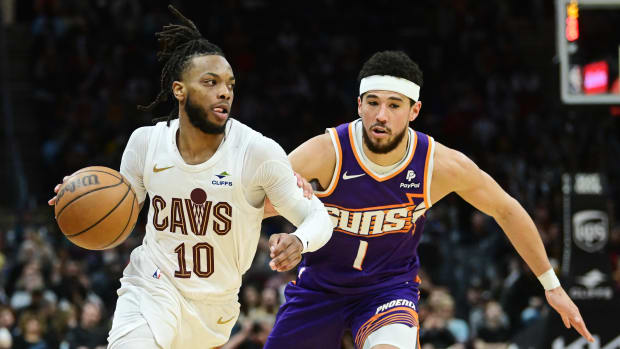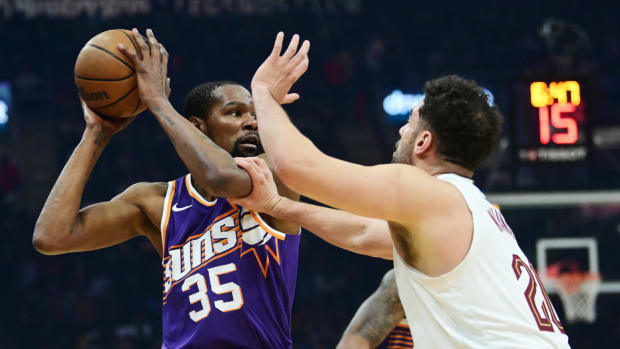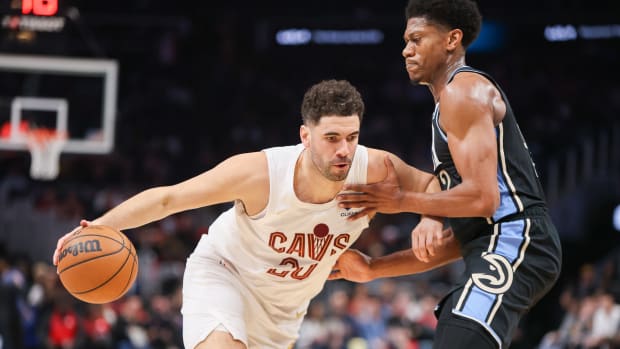Numbers may reveal truths about Hornets
Despite what guys like Charles Barkley might say, analytics can reveal a lot about a team. Sure the numbers don’t tell the entire story, but typically they’ll do a pretty sufficient job of at least developing the narrative.
Remember back in 2015, when Barkley so eloquently tore this emerging trend to shreds?
“I’ve always believed analytics is crap […] Analytics don't work at all. It's just some crap that people who were really smart made up to try to get in the game because they had no talent. Because they had no talent to be able to play, so smart guys wanted to fit in, so they made up a term called analytics. Analytics don't work.”
The jury rests.
In all seriousness, though, data truly can be an ally in forecasting future performance in the Association. Below are some intriguing data points that may be foretelling of the Hornets 2017-18 season.
Let’s get nerdy, shall we?
44.1 – this is ESPN’s projected win total for Charlotte, calculated using the Real Plus-Minus (RPM). This prediction slots the Hornets into the Eastern Conference's fifth seed, behind the Milwaukee Bucks and ahead of the Toronto Raptors.
.150 – this was the Hornets winning percentage last year when center Cody Zeller didn’t play, winning just 3 of 20 games in which he was inactive. By contrast, Charlotte went 33-29 with Zeller in uniform, a .532 winning percentage that's better than the 5th ranked Hawks last season. GM Rich Cho clearly recognized the value of his center when dealing for reinforcement Dwight Howard this summer.
3.6 – this was Zeller’s “wins above replacement” (or WAR) in 2016, compared to Howard’s 2.7 in Atlanta, per FiveThirtyEight. This is basically a fancy way of saying Zeller contributed 3.6 wins to the team’s record above an average replacement player.
4.7 – this is Zeller’s projected WAR for the 2017 season, which is comparable to Tristan Thompson’s 4.3 for the Cleveland Cavaliers last year. Moral of the story: Zeller is important to the Hornets success, perhaps even more important than Howard.
62 – total points that were tallied for Dwight Howard by an ESPN Forecast Panel, resulting in Howard being voted the 2017-18 “Worst Newcomer” to change teams. Howard was followed by Tim Hardaway Jr. (Knicks), Rajon Rondo (Pelicans), Danilo Gallinari (Clippers) and Derrick Rose (Cavaliers). This level of premature criticism seems a bit unsound, however, as Howard should at least improve Charlotte's interior defense and rebounding when Zeller’s on the bench.
8.8 – total offensive rebounds the Hornets collected per game last year, ranking just 25th in the league.
4.0 – total offensive rebounds per game pulled down by Dwight Howard last season, tying the 2nd highest average of his career.
28 – the Hornets overall ranking in fast break points per game last season. Their dismal 9.4 points per game in transition were better than only the Utah Jazz and Dallas Mavericks. Former Kentucky Wildcat and 11th overall draft pick Malik Monk should provide an immediate boost to this glaring deficiency in Charlotte.
30% – proportion of Malik Monk’s offensive possessions that occurred in transition at Kentucky last season. Per SBNation, “Anyone who watched Monk at Kentucky saw flashes of brilliance on the fast break […] a stud athlete who should thrive in transition.”
While all these numbers are fun, you and I (and Charles Barkley) know, the game is ultimately decided on the court, not in an Excel spreadsheet.
"All these guys who talk about analytics, they have one thing in common: They're a bunch of guys who ain't never played the game, they never got the girls in high school."
C’mon Chuck, now you’re hitting too close to home!
--
Christopher Kreider | @krydr1
